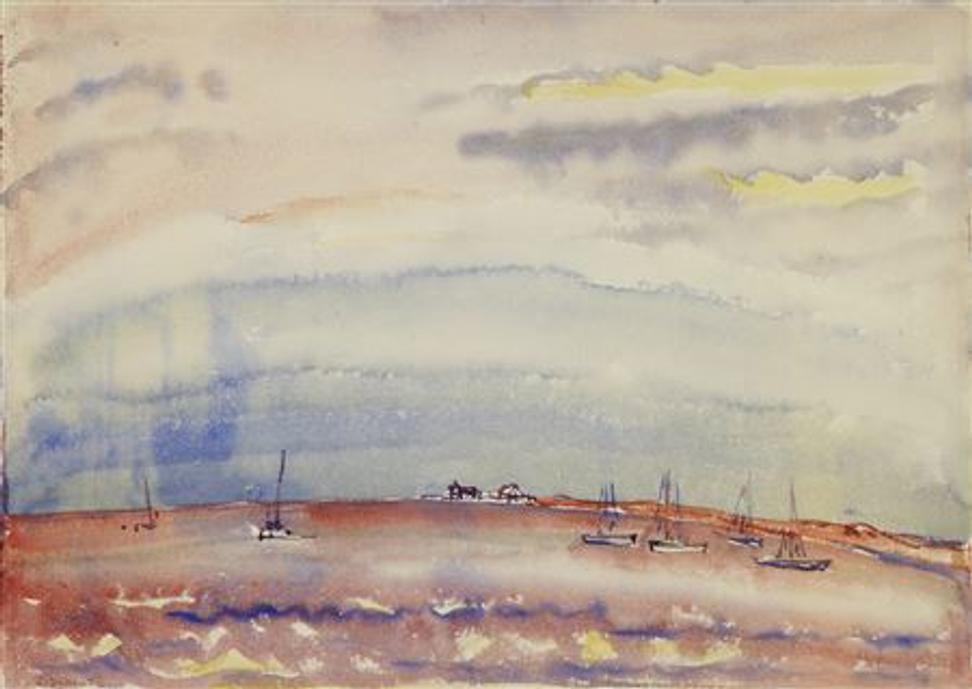Demuth Museum, Lancaster, PA
June 2 through September 2, 2018

Charles Demuth, Marine, n.d., watercolor on paper, collection of the Demuth Museum, Lancaster, PA
The exhibition Charles Demuth: Definitively Modern and accompanying catalog focus on the Demuth Museum’s collection of original art by Charles Demuth. The collection is now the largest in the world with 52 works of art as well as it is the largest repository of original archival material on the artist.

Charles Demuth, Landscape, watercolor, Demuth Museum Collection
The exhibit will feature highlights from the collection.
Demuth played a vital role in the American modernist art scene both abroad and at home while surrounded by the who’s who of the expatriate art scene and close friends including, Leo and Gertrude Stein, Marsden Hartley, Eugene O’Neill, and Marcel Duchamp. Demuth soaked up the experience and dynamism that was life as an artist in the early 20th century and brought it home to his studio on East King Street in Lancaster, where his primary subject matter was the city of Lancaster and his mother’s flower garden.
Demuth's evolving style and pioneering artistic achievements, celebrated in his famous architectural works, are inseparable from his lifelong exploration and contributions in watercolor. Demuth suffered from diabetes, a debilitating disease that rendered him incapable of anything other than bed rest for periods of his life, and assisted his developments in watercolor, which was more suited to his lifestyle and was currying favor with the early modernists of the time.
During the years 1914-1919, which are considered to be Demuth's most prolific, he utilized the free-flowing effects of the watercolor medium to capture his travels to New York and Provincetown. During these frequent excursions, he spent time with a group of companions, many of whom formed the cultural elite, and was exposed to the work of expatriate artists, often via exhibitions of European and American modern art in the galleries of Alfred Stieglitz. Despite his attachment to New York, Demuth consistently returned to Lancaster and painted most in his home studio. He preferred to interpret what he saw literally in his own backyard, including the vegetables and flowers that were so important in his agricultural city.
Accompanying this exhibition is a major catalogue, Charles Demuth: The Demuth Museum Collection by Anne M. Lampe published by the Demuth Museum, 176 pages. $29.95